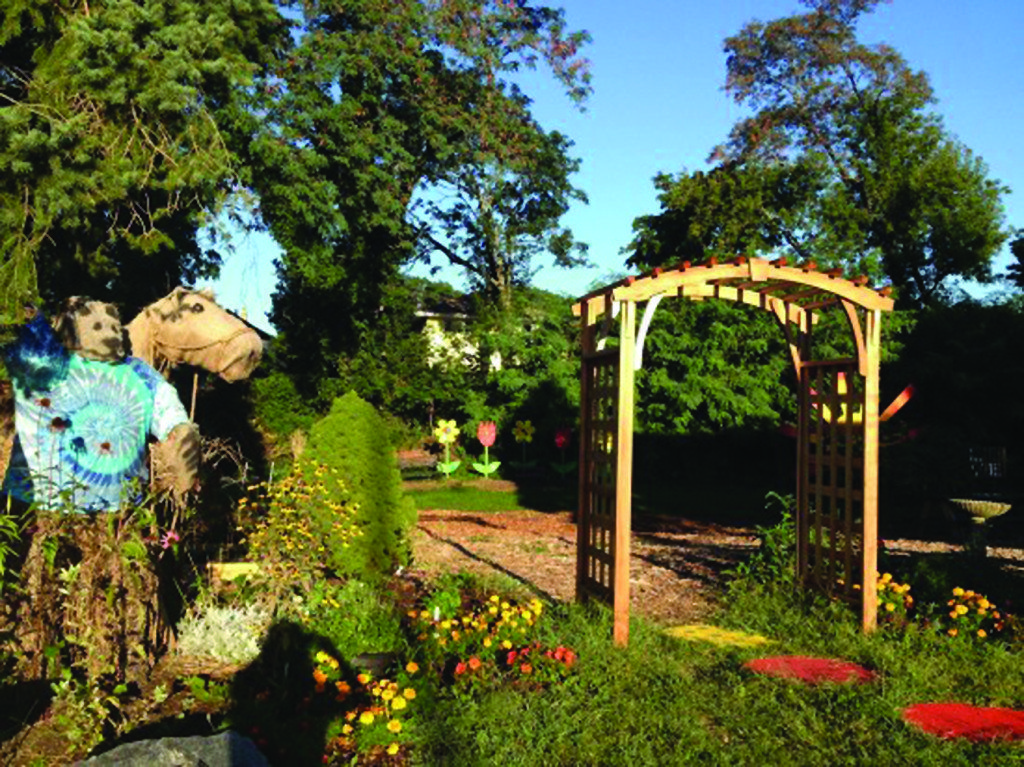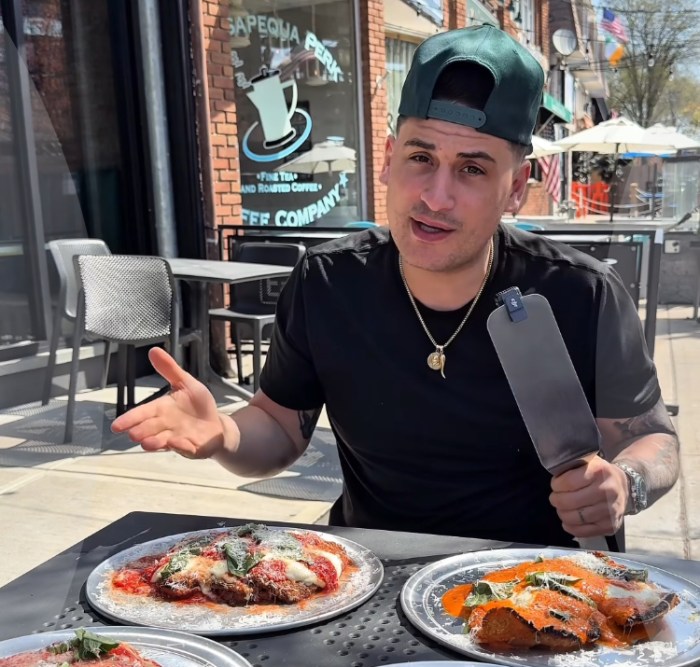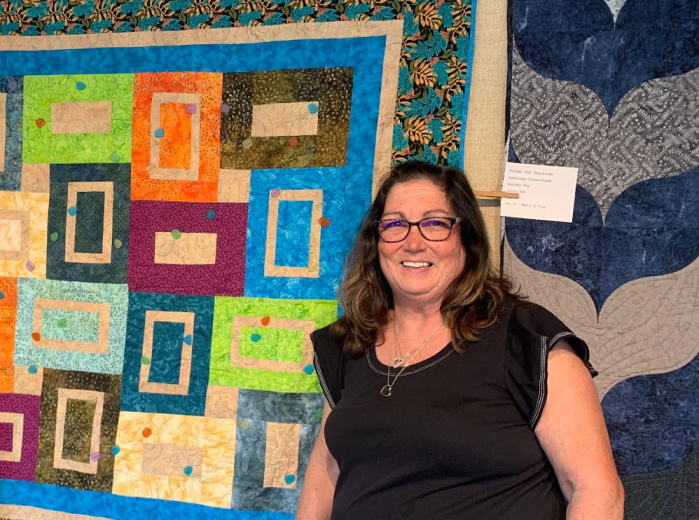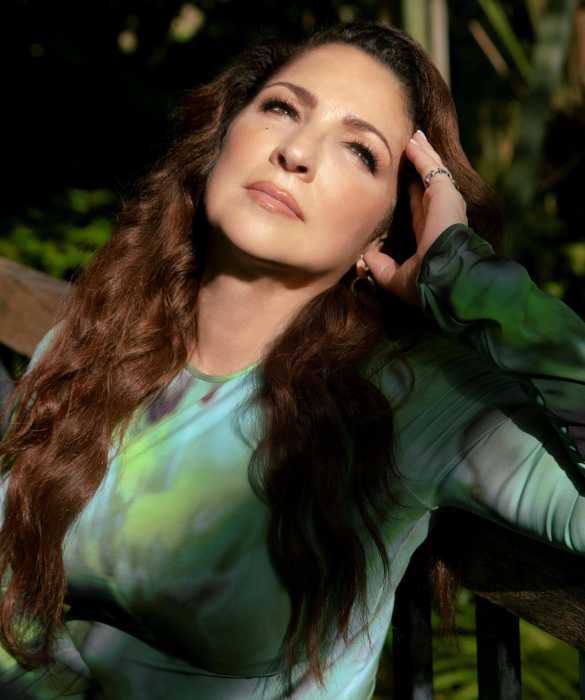 Imagine a place where community members of all ages with a common appreciation of nature can come together to tend to their own plots of land and watch their plants grow together. For residents of Nassau County, this is more than just wishful thinking, it’s a reality.
Imagine a place where community members of all ages with a common appreciation of nature can come together to tend to their own plots of land and watch their plants grow together. For residents of Nassau County, this is more than just wishful thinking, it’s a reality.
Community gardens are sprouting up across Long Island, bringing a sense of unity to certain neighborhoods. Though similar in aesthetic, each garden possesses its own unique purpose and goals for the future.
A community garden is “a single piece of land gardened collectively by a group of people,” yet it offers much more than the definition implies. Participation in these local gardens is on the rise, bringing people of all ages, genders, ethnicities and backgrounds within a neighborhood together. According to the Long Island Community Gardens website, “Not only do gardens increase access to fresh food and nature, they also beautify neighborhoods, raise property value, and reduce neighborhood crime.”
“The purpose of this community garden is to encourage neighbors to interact while appreciating the flora and fauna as well as learning about healthier diet alternatives,” reads the mission statement of the Baldwin Community Garden, founded in 2014. Though it has been in operation for just two years, garden participants have certain things they intend to achieve in the near future including the creation of an interactive children’s garden, bike racks and a solar powered kiosk where people can find information regarding upcoming local events and workshops. Residents are also speculating upon the possibility of a sculpture garden, a meditative maze and a farmer’s market that can distribute locally grown produce to nearby shelters and food pantries.

Freeport’s Seed to Table Community Garden holds similar values, but focuses its attention on the neighborhood’s youth. The garden, which contains eight compost beds and two compost bins, attempts to utilize the space as an outdoor science and nutrition laboratory to teach students both practical business and agricultural skills. Many of these students come from low-to-moderate income households, and have the ability to bring produce home or sell the rest to a farmer’s market. The garden is currently expanding its efforts with 16 more beds under construction.
In an effort to reconnect people with nature following the devastating effects of Hurricane Sandy, the Cornell Cooperative Extension Community Garden at East Meadow Farms leases plots to schools, families, individuals, and community groups. After Hurricane Sandy, many people lost their personal gardens, so this allows them the opportunity to start fresh while also connecting with residents in similar circumstances. Plots are offered to Nassau County residents through a lottery system each year. Any excess produce from the week is donated to the Interfaith Nutrition Network (INN) in Hempstead, a non-profit organization that addresses the issues of hunger and homelessness on Long Island.

Long Beach’s first community garden, the Magnolia Center Community Garden, was founded in 2013 in hopes of educating the surrounding community about the health and environmental benefits of locally grown food. The goal is to promote all that home-grown produce has to offer including better food quality, a reduction in the price of fruits and vegetables, and a decreased carbon footprint and amount of fossil fuels emitted associated with the transportation of food products. The garden is open to all Long Beach residents whether they choose to just visit or volunteer.
With a similar mission to grow food for local consumption, the Trinity Lutheran Church Community Garden located in Hicksville was founded in 2011 with the purpose of providing food to individuals and families in the surrounding neighborhoods who are struggling to meet their basic needs. The 33 raised beds are accompanied by a small fruit tree orchard to produce a variety of fruits and vegetables. Garden participation is not limited to members of the church congregation. Residents of Hicksville as well as the surrounding communities are all encouraged to visit and engage in activities.
One of the oldest community gardens on Long Island is in Lynbrook, the Tony Lenzo Lynbrook Community Gardens, founded in 1994. The space, once just underutilized land, was transformed by one of its founders, Tony Lenzo, who would visit the gardens to perform daily maintenance and teach other residents about weeding and planting. Today, it contains a total of 40 plots where residents can apply for a plot of land to grow their own produce.
 Recently a garden in Westbury, the “Yes We Can” Community Garden, made certain adjustments that allows residents with disabilities and senior citizens to enjoy the space as well. On May 23, five new garden beds were unveiled to the public, two of which are Americans With Disabilities Act (ADA) compliant and wheelchair accessible. The garden hosts a range of crops, particularly cold-tolerant crops, such as romaine, cilantro, napa cabbage, baby bok choy, broccoli and beets.
Recently a garden in Westbury, the “Yes We Can” Community Garden, made certain adjustments that allows residents with disabilities and senior citizens to enjoy the space as well. On May 23, five new garden beds were unveiled to the public, two of which are Americans With Disabilities Act (ADA) compliant and wheelchair accessible. The garden hosts a range of crops, particularly cold-tolerant crops, such as romaine, cilantro, napa cabbage, baby bok choy, broccoli and beets.
These community gardens only scratch the surface of those that can be found across Long Island. In Nassau County alone, there are gardens located in Hicksville, Westbury, East Meadow, Great Neck, New Hyde Park, Rockville Centre and South Hempstead. If your neighborhood doesn’t already have one, there are steps that can be taken to establish a new community garden.
For information regarding the proper procedure, visit longislandcommunitygardens.org.
































